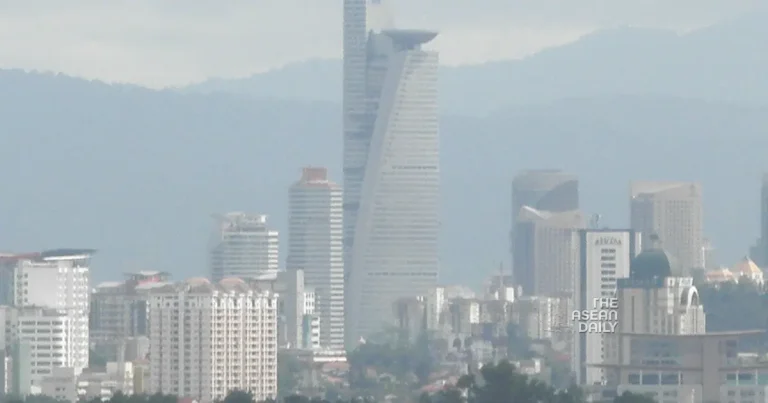5-10-2023 (KUALA LUMPUR) Malaysia has urged its neighbor, Indonesia, and the Association of Southeast Asian Nations (ASEAN) to take swift action in response to the worsening air quality caused by fires in Indonesia, as revealed by the Malaysian environment minister.
Air quality has deteriorated significantly in various parts of Malaysia in recent days, leading Kuala Lumpur to point fingers at Indonesia for the fires responsible, though Jakarta has denied any smoke crossing its borders into Malaysia.
During nearly every dry season, fires are deliberately set in Indonesia to clear land for palm oil and pulp and paper plantations, causing a blanket of smoke that affects the entire region. This annual haze endangers public health and causes alarm among tourism operators and airlines, many of which are foreign-owned or listed.
In 2015 and 2019, fires that generated haze across the region burned millions of hectares of land and released record-breaking emissions, according to scientists.
Nik Nazmi Nik Ahmad, Malaysia’s minister of natural resources, environment, and climate change, stated that he has dispatched a letter to his Indonesian counterpart this week addressing the haze issue.
“We submitted our letter to inform the Indonesian government and urged them to take action on the matter,” he commented in an interview. “We cannot consider haze as something normal.”
He reiterated that the majority of the hotspots indicating fires were located in Indonesia.
The Malaysian government has also contacted Malaysian-owned plantation companies operating in Indonesia to ensure that they comply with the law and refrain from burning.
Nik Ahmad has called for collaborative efforts within ASEAN, either through legislation or an agreement, to prevent the annual haze problem.
“I hope that every country will be able to be open to finding a solution because the damage to the economy, tourism, and especially health is immense due to the haze,” he emphasized.
He noted that Malaysia is still “seriously” considering implementing a law similar to Singapore’s, which holds companies accountable for air pollution.
However, concerns exist about Malaysia’s ability to prosecute overseas polluters, he added.




